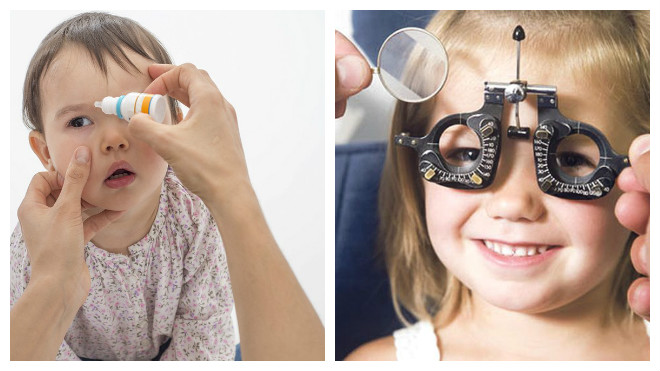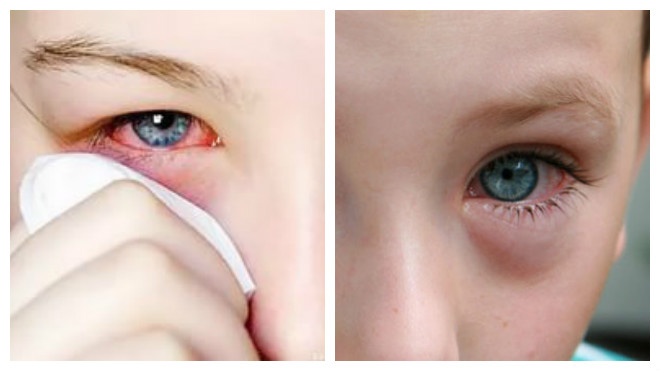Why does the child blink his eyes often
If a child blinks his eyes often, then this can be considered as a violation. First of all, you need to find out the reasons why a person does it.
Constantly blinking is a very important function that ensures the normal functioning of the visual system. When moving, the mucous membrane is moistened, and its surface is also cleaned of debris and dust. Neither the person himself nor those around him may notice the physiological blinking, but sometimes it becomes more rapid.
Why does a person close his eyes
A person blinks 15-20 times per minute, that is, people spend 10% of wakefulness with their eyes closed. As already mentioned, blinking is necessary for. But recently, Japanese scientists have put forward a theory that it helps a person to focus and focus on what is happening around.
At the same time, observations were made, during which it turned out that the child blinks at a certain time. If he reads, he does so after the sentence has ended. If he listens to the interlocutor, he blinks during a pause. Thus, it was concluded that by blinking, a person mentally rests.
Etiology of the phenomenon
Parents themselves most likely will not be able to find out the reasons why their child blinks strongly and rapidly. There are various pathologies that are accompanied by such a phenomenon, so a medical examination is necessary.
The attending physician will determine why the child blinks frequently, and will tell you what treatment to start. It may also be necessary to consult a specialist. Consider the following:
- If a person blinks his eyes while watching TV or playing on a computer, then most likely his cornea dries up.
- Frequent blinking of the eyes in children may be associated with a concussion.
- This may indicate the presence of a nervous tic. In this case, everything happens involuntarily, facial muscles can twitch. It must be understood that a small organism is experiencing a strong nervous overload.
- Blinking eyes in children can begin at the moment when, while the baby can also squint.
The cause may be heredity or trauma.
If a child experiences stress (moving, conflicts in the family or at school, fears, etc.), then this can also lead to involuntary blinking. If the baby suddenly began to blink frequently, there is a possibility that a foreign body has got into his eye.
Increased blinking can be observed after prolonged use of certain medications, after various diseases, and also if there are deviations in the functioning of the eye. An ophthalmologist or pediatric neuropathologist can find out the exact cause. It is forbidden to prescribe treatment on your own. Medications can only be prescribed by a specialist.
Treatment of diseases
Not always frequent blinking should be treated with medication, for example, nervous tics in most cases go away on their own. But for this it is necessary that the baby is in a calm environment and not subjected to stress.
Watch your child, perhaps he is overloaded with lessons and extra activities and does not have time to fully relax. He may have problems and conflicts with peers, this is usually the most common cause of nervous disorders in childhood.
Take care of yourself, are you being too strict with your child? Are you asking him the impossible? Does it happen that you criticize him, make comments, scold and forbid something? In the educational process, it is necessary to maintain the correct balance and not go too far. The kid must be sure that, at least in the family, he will always be understood, supported and protected.
Various neurotic tics and severe emotional states occur in children after a strong fright.
How to treat such disorders, a neurologist can explain. It is possible that a consultation with a psychologist will be required, who will conduct several sessions with the patient, and he will become calmer.
If a child began to blink his eyes often after a foreign body got into the organ of vision, then it is necessary to clear the mucous membrane of debris, and in order not to develop a bacterial infection, conduct anti-inflammatory and disinfectant therapy. In this case, you can use the recipes of traditional doctors and rinse the conjunctiva with decoctions of medicinal plants. For this, it is recommended to use chamomile, calendula and other crops that can have an anti-inflammatory effect.
In the case of a corneal transplant, the ophthalmologist will explain what to do and what preparations to use to moisturize. Parents should strictly monitor how much time the child spends at the computer monitor and in front of the TV. Overdrying can be caused not only by technical gadgets, but also by dry air in the room, so it is necessary to install a humidifier in the nursery. If the eyes squinted for a long time in the sun, then perhaps this is the reason for the drying of the cornea.

If there is a microtrauma, then the baby will constantly blink with one eye, most often in this case the organ of vision turns red, lacrimation is observed from it. In this case, the second - will be in perfect order.
When blinking is associated with a decrease in visual acuity, then first of all you need to contact an eye specialist - an oculist, or an ophthalmologist. Only a doctor can begin to correct it.
Do not forget that blinking eyes can be caused by an allergic reaction.
An allergist is able to determine what an allergy is in a child after examination and tests. As a rule, in such cases, it is necessary to stop contact with the irritant, for some time the baby must take antihistamines.
Conjunctivitis needs to be said separately and in a little more detail. This is an inflammatory process in the mucous membrane of the eye, with this disease, the child can also often squeeze the eyelids. Other symptoms will be:
- swelling of the eyelids;
- redness of the mucous membrane;
- increased tearing;
- photophobia;
- purulent discharge.
If the child is very small, then his behavior will be restless, he will constantly try to rub his eyes with his fists, cry. The temperature may rise. There are many causes of conjunctivitis - these are viral, bacterial infections, allergies.
Therapy should be prescribed by the attending physician after diagnosing and determining the nature of the disease. If this is a bacterial form (which is most often found in children), then antibacterial agents will be prescribed, and in case of viral damage, antiviral drugs.
If the disease is caused by an allergy, then antihistamine therapy is necessary.
With conjunctivitis, traditional medicines are usually prescribed, which successfully complement medical therapy. It can be decoctions of chamomile, cornflower flowers, bay leaves, strong black tea helps very well.

When do you need to urgently go to the ophthalmologist? In such situations:
- If the baby complains of pain in the eye, which does not stop for 2-3 hours.
- If the patient says that he does not see well.
- If there is purulent discharge from the eye. In this case, one or two organs of vision may swell and turn red.
- It is necessary to consult a specialist if the baby not only blinks his eyes often and squints, but also stutters and nervously fiddles with his hands.
- If the child fell, hit his head and began to blink his eyes rapidly and complain of pain in his head.
If a child closes his eyelids rapidly, do not focus on this, do not ask the baby why he does this. You can not scold the baby, because in this case the situation will only get worse. Give your child a break from classes, but not at the computer or watching movies. Let him take a walk outside or sleep.
If a small child blinks frequently, try to make him relax, take him in his arms, let him close his eyes and feel safe.
Read a book or tell him a story.
With frequent blinking, the baby should be given more clean water, fruits and raw vegetables. Carrots are especially useful for vision. Save sugary drinks and pastries for later. Zinc supplements can be used to boost your child's immune system, but you should consult your doctor before taking them. Watch your children carefully. There are no harmless situations in the situation with the eyes. Even a simple mote can cause vision loss.
